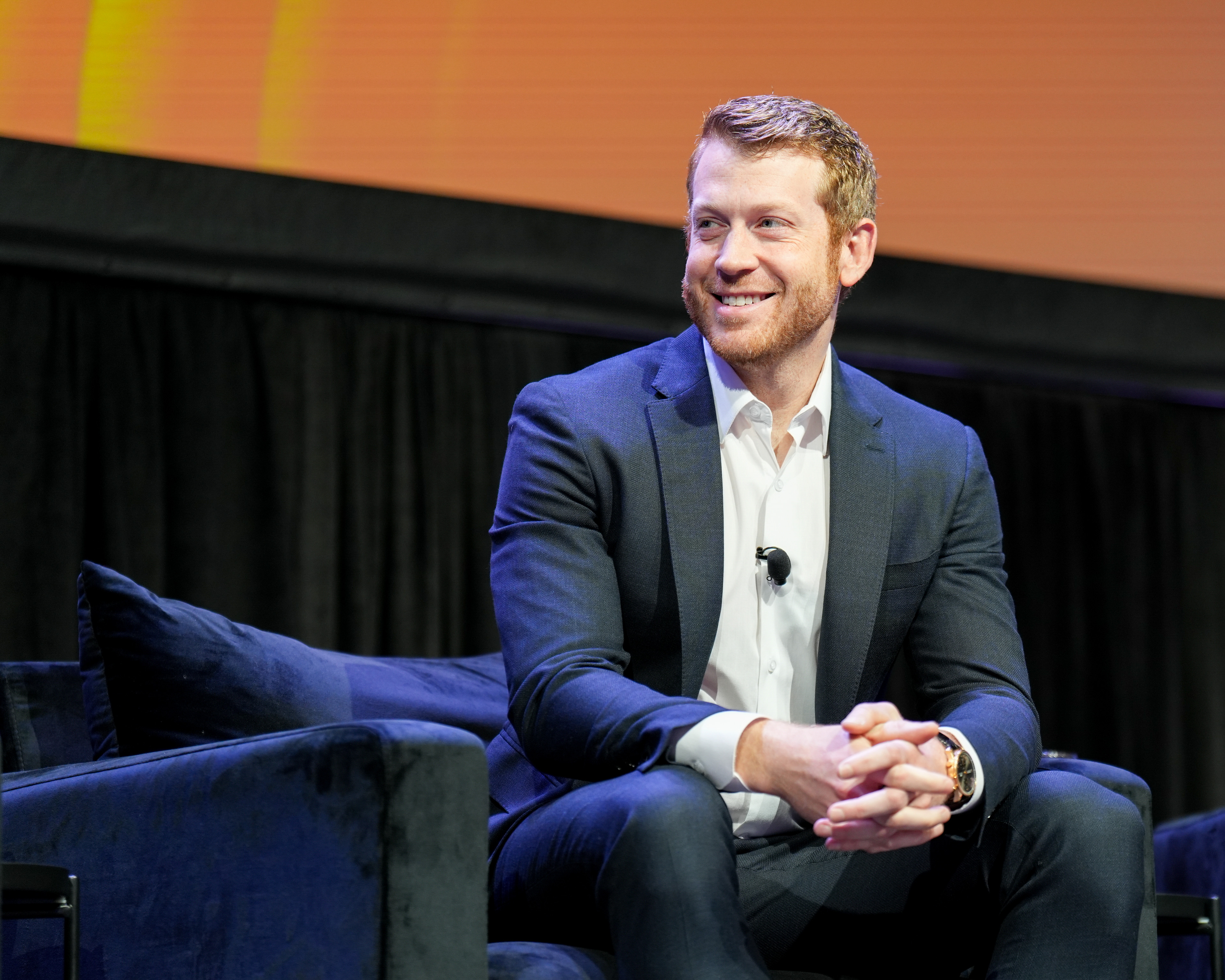Cruise co-founder Kyle Vogt is out as chief executive of the General Motors-owned driverless car company.
His departure came to light Sunday with Silicon Valley still reeling over the leadership shakeup at another high-profile San Francisco-based artificial intelligence firm: OpenAI, which lost its CEO Sam Altman two days prior in a surprise ouster.
READ MORE: Everyone in Silicon Valley Has an Opinion on OpenAI Leadership, Sam Altman as Reunion Talks Swirl
Vogt’s similarly sudden exit from Cruise comes less than a week after the company pulled its entire fleet off public roads in the U.S. to conduct a safety review after one of its robotaxis dragged a pedestrian in San Francisco.
And it comes a day after the chief executive publicly apologized for leading Cruise to such a fraught juncture.
“As CEO, I take responsibility for the situation Cruise is in today,” he wrote in an email to staff first reported by Reuters. “There are no excuses, and there is no sugarcoating what has happened. We need to double down on safety, transparency, and community engagement.”
Today I resigned from my position as CEO of Cruise. (1/5)
— Kyle Vogt (@kvogt) November 20, 2023
Vogt, 38, announced his departure from the autonomous vehicle (AV) company in a five-part thread on X/Twitter Sunday evening.
“Today I resigned from my position as CEO of Cruise,” he wrote. “The last 10 years have been amazing and I’m grateful to everyone who helped Cruise along the way. The startup I launched in my garage has given over 250,000 driverless rides across several cities, with each ride inspiring people with a small taste of the future.
“Cruise is still just getting started, and I believe it has a great future ahead,” Vogt continued. “The folks at Cruise are brilliant, driven, and resilient. They’re executing on a solid, multi-year roadmap and an exciting product vision. I’m thrilled to see what Cruise has in store next!
“To my former colleagues at Cruise and GM—you’ve got this!” he went on to write. “Regardless of what originally brought you to work on AVs, remember why this work matters. The status quo on our roads sucks, but together we’ve proven there is something far better around the corner.”
According to a statement from parent company General Motors confirming the changing of the guard, Cruise Vice President of Engineering Mo Elshenawy will serve as president and chief technology officer, Craig Glidden as chief administrative officer and Jon McNeill as vice chair of the board.
New: GM Cruise CEO Kyle Vogt resigns pic.twitter.com/0vqYtVoGGb
— David Shepardson (@davidshepardson) November 20, 2023
Cruise has yet to respond to The Standard’s request for comment.
The GM firm had been deploying driverless cars in San Francisco and several U.S. cities alongside its competitor, Alphabet’s Waymo.
But a series of run-ins between autonomous cars and emergency vehicles made California regulators think twice about giving robotaxis free rein of San Francisco, where Waymo and Cruise first began testing their driverless fleets a couple years ago.
Then came Oct. 2, when a Cruise robotaxi in Downtown San Francisco dragged a woman who was already struck by a human driver in a hit-and-run. The California Department of Motor Vehicles suspended Cruise’s robotaxi permits and accused the company of hiding complete footage of the incident from regulators.
The permit suspension affected Cruise’s robotaxi deployment throughout California and shook public trust in the company more broadly.
A little more than a month later, Cruise went a step further by voluntarily halting not just driverless cars but its entire fleet—with or without a human behind the wheel—throughout the U.S.
“This orderly pause is a further step to rebuild public trust while we undergo a full safety review,” the company wrote in a statement about the decision early last week after a quarterly board meeting in San Francisco. “We will continue to operate our vehicles in closed course training environments and maintain an active simulation program in order to stay focused on advancing AV technology.”
Cruise then announced that Exponent—an engineering consultant it hired to probe the Oct. 2 pedestrian-dragging incident—would expand its review to look at the company’s entire approach to safety and oversight.
The GM subsidiary also promised to hire a chief safety officer—who was supposed to report directly to Vogt—and said it bolstered its software to prevent cars from dragging people after a collision.
But scrutiny from the public, DMV and federal watchdogs at the National Highway Transportation Safety Administration had already mounted enough to make the robotaxi division helmed by Vogt a costly endeavor for its parent company.
According to its latest quarterly update, GM lost nearly $2 billion on Cruise between January and September 2023—some $732 million of it in the third quarter alone.
